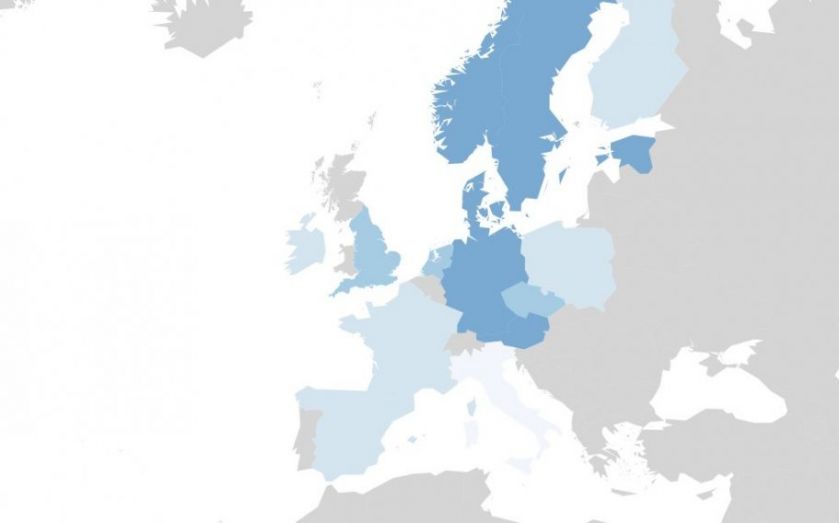Bad education? 14pc of English adults are now less educated than their parents

Fourteen per cent of English adults aged 25-64 are less educated than their parents, according to a new study.
The report explored educational mobility – or the likelihood people of a given generation achieve a higher level of education than their parents.
The figures, by the OECD, showed educational mobility had slowed in the developed world, including in England.
Use our interactive map to explore the data. Click on any coloured country to reveal the mobility breakdown by age bands.
To scroll past this map on mobile, swipe down to the right of the visualisation.
Taking just the median of the percentages for each country (rather than adjusting for overall population), 41 per cent of respondents in the mapped countries were "upwardly" mobile, while 12 per cent were downwardly mobile.
For England, the figures were 38 and 14, putting us behind the average.
Mean percentages for the OECD countries were 12 and 39.
Interestingly, for several countries the proportion of downwardly mobile people increased among younger respondents. This was the case in England, the US and Spain, although England's figures are less dramatic than its Spanish or US equivalents.
This was compounded by information showing higher education has not become more inclusive. From the report:
Among the younger age group of 25-34 year-olds, where the tertiary attainment rate had risen to 43 per cent, the impact of parents’ educational background was just as strong: of adults with at least one tertiary-educated parent, 65 per cent attained a tertiary qualification, while of the adults with low-educated parents only 23 per cent did. These data suggest that the expansion in education has not translated into a more inclusive society.
Overall, South Koreans were most likely to be better educated than their parents (58 per cent) and the Czech Republic least likely (21 per cent).
Other interesting stats to come from the report included data showing that:
Around 84 per cent of today’s young people will complete upper secondary education over their lifetimes. In most countries, young women are now more likely to do so than men, a reversal of the historical pattern.
Close to 40 per cent of 25-34 year-olds across OECD countries now have a university-level education. That proportion is 15 percentage points larger than of 55-64 year-olds who have attained a similar level of education. In many countries, this difference exceeds 20 percentage points.
Tertiary-educated individuals are likely to earn twice as much as the median worker. In Chile, Brazil and Hungary, tertiary-educated people earn more than double the income of a person without upper secondary education.